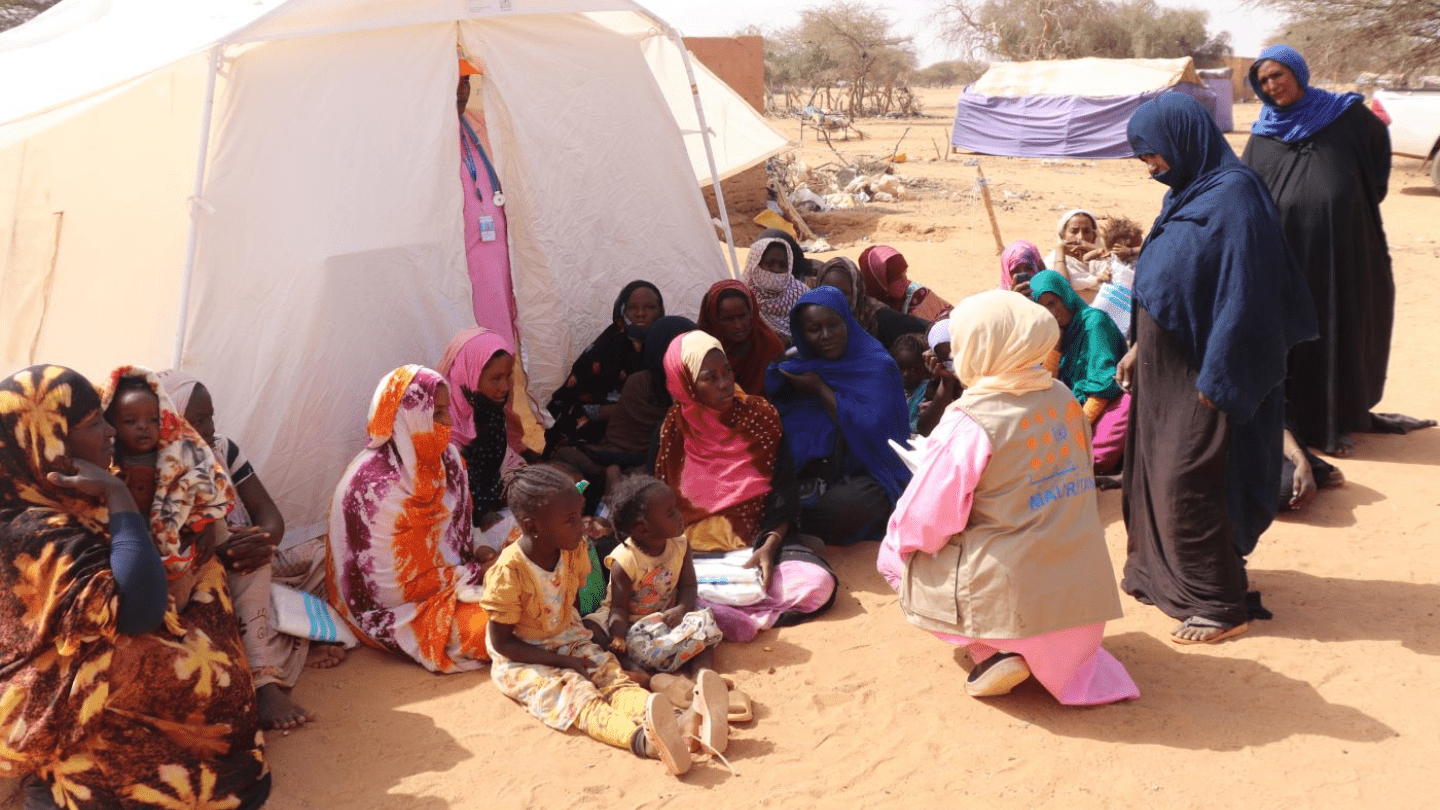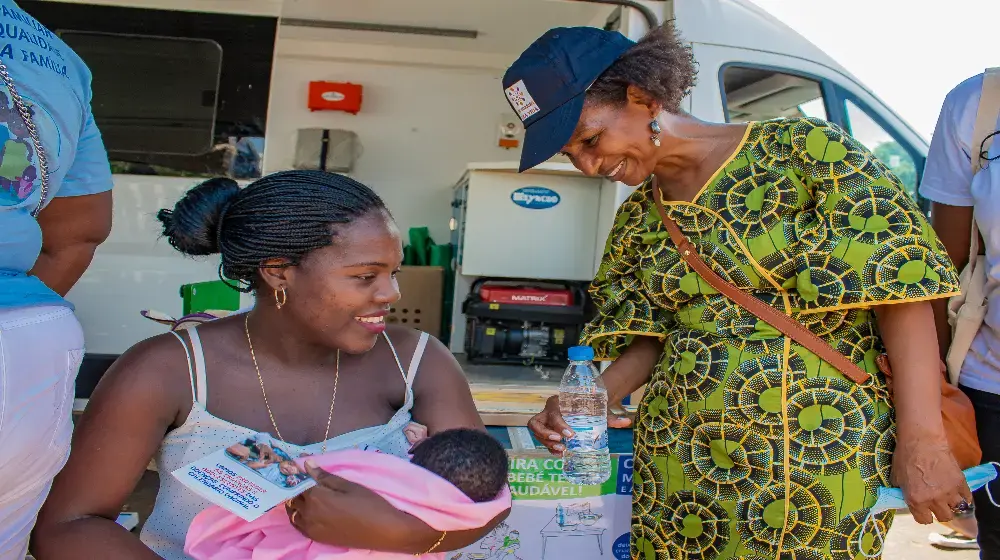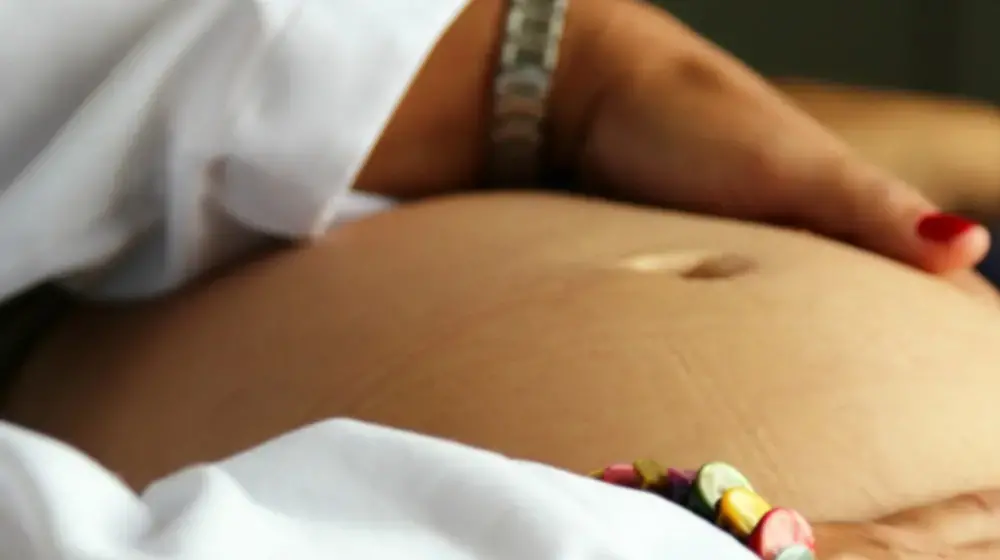Bassiknou, Mauritania – As part of the 2024 CERF (Central Emergency Response Fund) project, "Strengthening Access to Sexual and Reproductive Health (SRH) and Gender-Based Violence (GBV) Services," a mobile outreach was conducted in Hassi Lebyad in November 2024, under the supervision of a joint UN mission.
Led by Ms. Lila Pieters, UN Resident Coordinator in Mauritania, alongside UNFPA and UN agencies (UNHCR, UNICEF, WFP, ILO) operating in Bassiknou, the mission aimed to strengthen humanitarian coordination and enhance the response to urgent sexual and reproductive health (SRH) and gender-based violence (GBV) needs in the Hodh Echargui region.
The mobile outreach sought to improve access to reproductive health, family planning, and GBV prevention services for refugees, returnees, and host communities in Hassi Lebyad—a village located 7 km from the main town, where 1,800 residents have welcomed around 400 refugees and returnees, despite already scarce resources.
In this challenging environment, women and young girls face significant geographical and financial barriers to accessing essential reproductive health services.
Mariam, a young refugee, shared the challenges she faces in accessing essential hygiene products before adding that the hygiene kit she received will be “a great help.”
Indeed the outreach activity was essential and contributed to reducing health risks and allowed early detection and treatment of potential complications through:
- Mass awareness and information sessions to educate the population on the importance of reproductive health.
- Personalized counseling sessions for pregnant women and young girls, focusing on menstrual hygiene.
- Enhanced community resilience by providing essential protection kits to help them better cope with health challenges in a difficult humanitarian context.
Like many women in her community, Fatma learned from the village chief about an upcoming mobile health outreach and didn’t hesitate to attend. Upon arrival, she was warmly welcomed by a team of skilled, compassionate midwives, ready to provide the care she needed.
During her prenatal check-up, Fatma received a delivery kit with essential items to protect her health and that of her baby in case of complications. The midwives reassured her about her pregnancy’s progress, guided her on recognizing danger signs, and shared essential advice on hydration, rest, and nutrition—ensuring she is fully prepared for a safe and healthy birth.
In total, the mobile unit provided critical services to 120 women and girls, including antenatal and postnatal consultations, ensuring medical follow-up for pregnant women and young mothers to support safe pregnancies and deliveries, family planning services, including awareness-raising and the distribution of contraceptive methods, enabling couples to make informed choices and distribution of hygiene and delivery kits, a crucial measure to protect the dignity and health of women, particularly in this humanitarian context where resources are extremely limited.
The visit also served as a key moment to evaluate ongoing interventions for refugees and host communities, identify persistent challenges, and engage with local authorities and partners. It highlighted both humanitarian achievements and key priorities for sustainable development and resilience.
Emphasizing the importance of collaboration, Ms. Lila Pieters hailed the joint efforts as "a model of successful partnership for a sustainable future."




